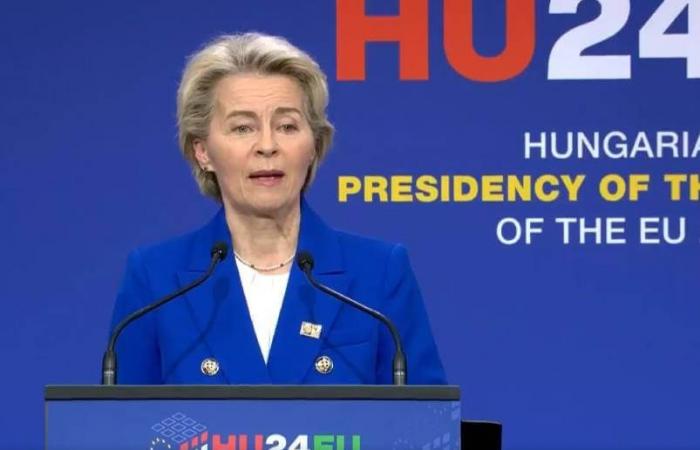What if the major texts of the European Green Deal were renegotiated? In any case, this is the proposal that seems to be on the table at the European Commission to “simplify” European sustainability regulations. After the proposed moratorium on the CSRD – the directive on corporate sustainability reporting – by Michel Barnier, the public positions taken by several private sector lobbying groups against the CSRD, after the Draghi report which called for renegotiating the standards , the lines have been moving in recent weeks in Europe. During a press conference in early November, the President of the European Commission, Ursula von der Leyen, declared that she would soon propose omnibus legislation with the aim of “reduce bureaucracy and reduce reporting burdens”.
“An omnibus bill proposes targeted changes to a number of laws within a common framework. These changes are not very common, although the industry always calls for them” explains Richard Gardiner, head of European public policies at the World Benchmarking Alliance. In line of sight according to the President of the Commission: the CSRD, but also the CSDDD, directive on the duty of vigilance, as well as the green taxonomy on finance, all three of which could be reopened for negotiation. Omnibus legislation has notably been used to “modernize” or transform certain parts of the CAP (Common Agricultural Policy) or for consumer protection legislation. This possible renegotiation of the three key texts is opening up as proposals are being made within European governments and among representatives of private sector interests to weaken the Green Deal.
Raising thresholds, reducing reporting obligations, etc.
In recent weeks, several avenues have been raised by leading officials, particularly among right-wing and far-right forces, to reconsider certain obligations linked to the CSRD. In Germany, where the CSRD has still not been transposed, several representatives of the liberal right, including the now former Minister of Justice Marco Buschmann, called for the text to be rewritten at European level, to reduce obligations. Same story for the European duty of vigilance which must come into force in 2027, criticized by private sector lobbies throughout Europe, with the echo of the EPP (right-wing parties) and the far right.
In France, Antoine Armand, Minister of the Economy, mentioned a few days ago an increase in the thresholds for the companies concerned, as well as a reduction in regulatory obligations for SMEs in particular. According to the AEF, Robert Ophèle, president of the Accounting Standards Authority, went in the same direction during a conference organized by Medef, calling for a review of the thresholds defined by the European Commission for companies subject to the CSRD. .
“The idea put forward in the mission letters of the European Commissioners is to recreate a “midcaps” category, for unlisted companies with between 250 and 750 employees for example, for which lighter reporting standards would apply” explains to Novethic Abrial Gilbert-d'Halluin, ex-CSRD sherpa, and advisor to an EPP deputy in the European Parliament. Depending on the thresholds chosen, there would therefore potentially be tens of thousands of European companies which would no longer be subject to the standards of large companies, but to those of listed SMEs, which are less ambitious.
“Everyone for themselves” for the Green Deal
A reopening of negotiations could, however, lead to a much more considerable weakening of the Green Deal. “The opening of omnibus legislation to adapt the thresholds, for example, will relaunch a process which involves European co-legislators” explains Abrial Gilbert-d’Halluin. “In practice, this will give the possibility of reopening discussions not only on the thresholds, based on the Commission's proposals, but also on any article of the text”. In other words: once negotiations open, it is impossible to know what will remain in the final text.
“Reopening the general standards of the CSRD published in the Official Journal in December 2023 would be a mistake” worries Abrial Gilbert d'Halluin, who fears that the renegotiation will create uncertainty for companies and prevent the harmonization of reporting. For his part, Richard Gardiner questions “are we going to renegotiate the European duty of vigilance, while consultations on implementation measures must begin? This doesn’t hold.” “What is worrying, particularly in view of the recent experience of the Deforestation Regulation, is that when we begin to question the form of legislation we also question the substance, and we attempt to cut provisions which are decisive for the respect for the environment and human rights” says Clara Alibert, economic stakeholder advocacy officer at CCFD-Terres solidaires.
To know how far the unraveling of the Green Deal is likely to go, we will have to wait for the appointment of rapporteurs on the different texts, and see what political forces will be at work. In the meantime, there is turmoil in the European authorities, because the Green Deal which occupied the previous legislature for 5 years, could be profoundly called into question in a few months.






